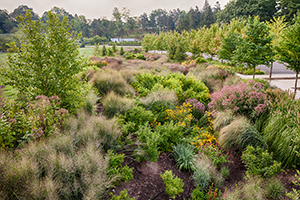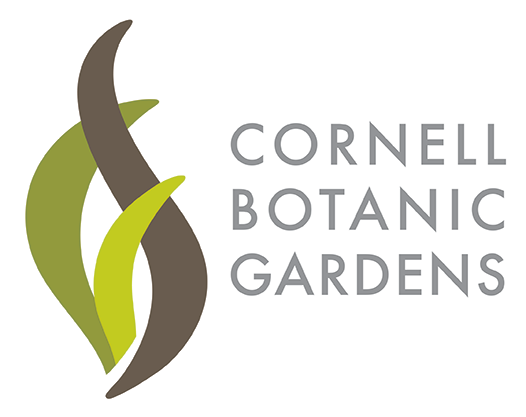Plantations contributes to Cornell's STARS gold rating
Published:
4 years 50 weeks ago As the caretaker of much of Cornell’s natural landscapes, efforts by Cornell Plantations staff contribute to this rating in several ways.
 Native Plants: The STARS rating systems recognizes universities for making efforts to use native plants in landscaped areas. There has been a long-standing practice of prioritizing and using native plants in campus landscaping, both in the maintained grounds as well as in the campus natural and cultivated landscapes that are used for teaching, research and conservation. At Cornell Plantations, a bioswale garden was constructed in 2010 to filter rainwater using native plants. Additionally, Plantations Natural Areas program dedicates much effort to restoring Cornell’s natural areas by removing invasive plant species and re-establishing native plants. These efforts and many others are guided by Cornell Plantations’ invasive species plant policy.
Native Plants: The STARS rating systems recognizes universities for making efforts to use native plants in landscaped areas. There has been a long-standing practice of prioritizing and using native plants in campus landscaping, both in the maintained grounds as well as in the campus natural and cultivated landscapes that are used for teaching, research and conservation. At Cornell Plantations, a bioswale garden was constructed in 2010 to filter rainwater using native plants. Additionally, Plantations Natural Areas program dedicates much effort to restoring Cornell’s natural areas by removing invasive plant species and re-establishing native plants. These efforts and many others are guided by Cornell Plantations’ invasive species plant policy.Management of natural landscapes: The STARS metrics recognizes institutions that have programs in place to protect and/or create wildlife habitat on institution-owned land. Cornell Plantations manages and protects two gorges, 70,425 feet of streams and riparian habitats, mature and successional forests, marsh, wet meadow, and old field habitats, as well as our Botanic Garden and F.R. Newman Arboretum. These areas, which comprise 32% of the campus, are actively protected and managed to support the educational mission of the University. Management activities include monitoring, habitat establishment, natural areas restoration, naturalization, invasive species control, and deer over-population management.
Integrated Pest Management: Cornell was recognized for carrying out the practice of Integrated Pest Management (IPM), an approach to controlling insects, weeds and plant diseased to maintain the health of living landscapes plants while minimizing the use of chemical pesticides. Cornell Plantations’ botanical garden and F. R. Newman Arboretum make up a large part of the campus’ cultivated landscape and staff follow an established IPM procedure to control pests which include naturalized landscape design that emphasizes a diversity of species, careful site selection and preparation, use of hearty, disease- and pest-resistant varieties, proper frequencies of watering, pruning, and mowing, mulching and introduction of naturally occurring organisms to control pests.
Read more about Cornell's STARS rating in the March 13 Cornell Chronicle article, “For a greening Cornell, three is a gold STARS charm."
To learn more about Cornell Plantations Natural Areas program, click here.



